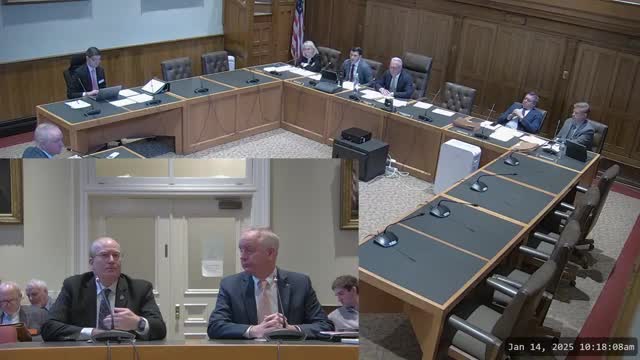Bill would give DES discretion to allow limited improvements to existing dwellings over water; lake groups warn of shading and habitat risks
Get AI-powered insights, summaries, and transcripts
Subscribe
Summary
Senate Bill 27 would give the Department of Environmental Services authority to waive certain restrictions so limited, safety‑oriented improvements to existing dwellings over public submerged lands can proceed if there is no negative environmental impact.
Senate Bill 27 would allow the New Hampshire Department of Environmental Services (DES) to use discretionary waiver authority to permit limited improvements to existing structures built over public submerged lands, provided the agency finds the work causes no negative environmental impact.
Grant Bosse and Sen. Kevin Kavanaugh presented the bill on behalf of the prime sponsor and described it as a narrow technical change to allow safety and access improvements to older buildings that predate current rules. Attorney John Cronin and homeowner advocates described a case in which a small, cantilevered stair/landing added to a decades‑old lakeside dwelling was later subject to enforcement action; they said the DES lacked explicit waiver power to approve modest fixes that do not harm the lake.
Cronin said the bill is designed to be a narrow fix so DES and the wetlands council can authorize improvements that “bring them in line with local building codes” and improve safety. “When the facts cry out for justice and the existing law doesn't allow a path to adjust result, it was time to change the law,” Cronin said, describing the policy intent as narrowly targeted.
Opposition came from New Hampshire Lakes, whose president and policy advocate Andrea Lamoreaux said the bill as written could permit horizontal or vertical expansions that would shade nearshore areas and harm sensitive fish spawning habitat and aquatic plants. “Substantial additional shading of the near shore area could affect sensitive fish habitat, particularly spawning areas for some fish,” Lamoreaux told the committee, and she urged clarifying language to limit outward or upward expansion and define “no negative impact.”
DES staff (Phil Trowbridge and wetlands administrator Darlene Forst) told the committee the department is not taking a position on the bill but raised implementation questions: whether local building codes apply over state submerged lands, whether the bill’s change from “outside dimensions” to “living space” introduces ambiguity, and that DES is in the process of updating administrative rules addressing boathouses and similar structures. They encouraged careful drafting and offered to work with the sponsor.
The committee closed the public hearing; there was discussion in executive session about other agenda items but no recorded committee vote on SB 27 in the hearing transcript. Testimony shows competing concerns — narrow relief for owners of aging waterfront structures versus lake‑health protections and administrative clarity — that the sponsor and agency said could be addressed in amendments or rulemaking.
